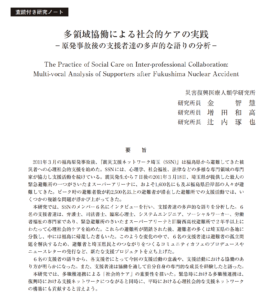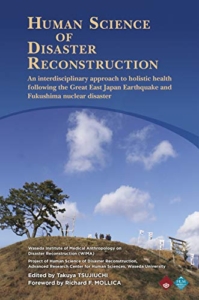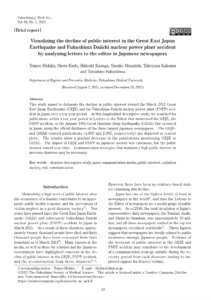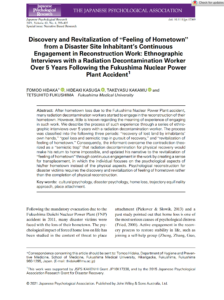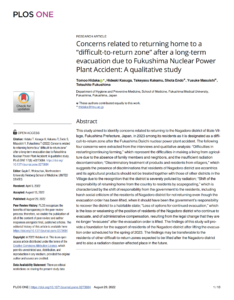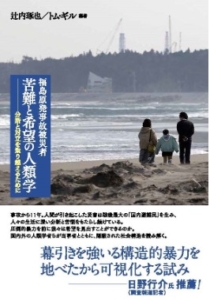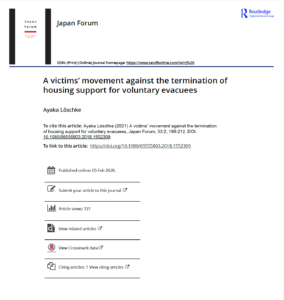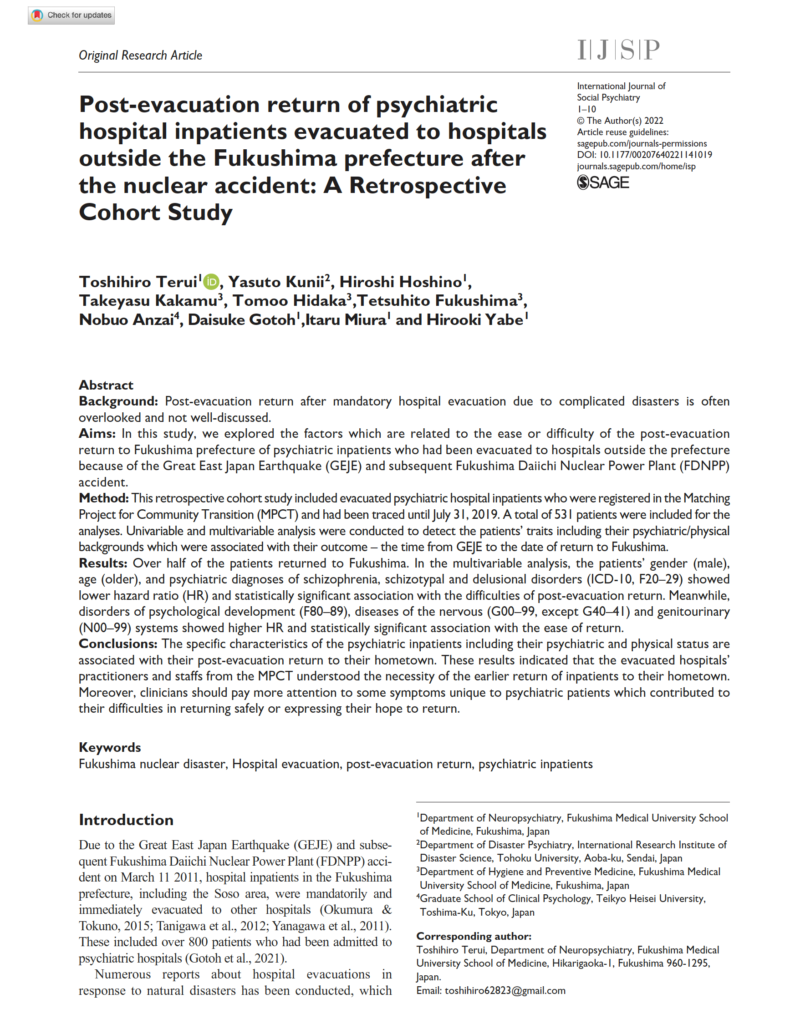
Abstract
Background: Post-evacuation return after mandatory hospital evacuation due to complicated disasters is often overlooked and not well-discussed.
Aims: In this study, we explored the factors which are related to the ease or difficulty of the post-evacuation return to Fukushima prefecture of psychiatric inpatients who had been evacuated to hospitals outside the prefecture because of the Great East Japan Earthquake (GEJE) and subsequent Fukushima Daiichi Nuclear Power Plant (FDNPP) accident.
Method: This retrospective cohort study included evacuated psychiatric hospital inpatients who were registered in the Matching Project for Community Transition (MPCT) and had been traced until July 3 I, 2019. A total of 53 I patients were included for the analyses. Univariable and multivariable analysis were conducted to detect the patients’ traits including their psychiatric/physical backgrounds which were associated with their outcome – the time from GEJE to the date of return to Fukushima.
Results: Over half of the patients returned to Fukushima. In the multivariable analysis, the patients’ gender (male), age (older), and psychiatric diagnoses of schizophrenia, schizotypal and delusional disorders (ICD-10, F20-29) showed lower hazard ratio (HR) and statistically significant association with the difficulties of post-evacuation return. Meanwhile, disorders of psychological development (F80-89), diseases of the nervous (G00-99, except G40-41) and genitourinary (NOO-99) systems showed higher HR and statistically significant association with the ease of return.
Conclusions: The specific characteristics of the psychiatric inpatients including their psychiatric and physical status are associated with their post-evacuation return to their hometown. These results indicated that the evacuated hospitals practitioners and staffs from the MPCT understood the necessity of the earlier return of inpatients to their hometown.
Moreover, clinicians should pay more attention to some symptoms unique to psychiatric patients which contributed to their difficulties in returning safely or expressing their hope to return.
Keywords
Fukushima nuclear disaster, Hospital evacuation, post-evacuation return, psychiatric inpatients
